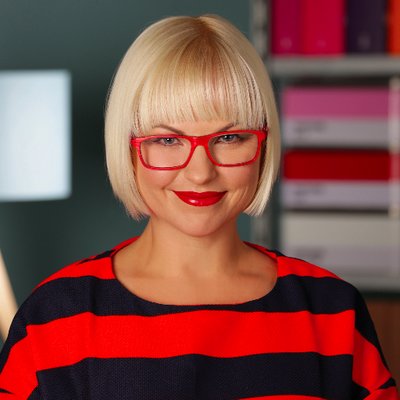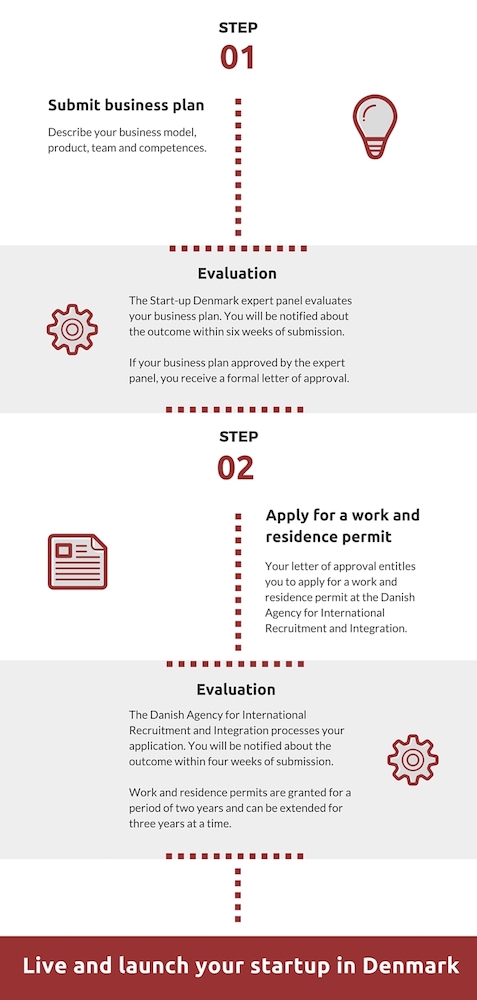The War for Talent is heating up, with an ever-increasing number of countries in Europe creating new visas to tap into the Global Mobility of Talent. Estonian officials announced a new visa for “digital nomads,” available in 2019, and Finland has introduced a startup visa.
These are just two of many new visas available to highly skilled internationals.
 Even as it departs the European Union, implements increasingly restrictive visa requirements and becomes more hostile to migrants in general, the United Kindom is unveiling its new startup visa, a visa we’re assuming will become irrelevant on 23 March 2019.
Even as it departs the European Union, implements increasingly restrictive visa requirements and becomes more hostile to migrants in general, the United Kindom is unveiling its new startup visa, a visa we’re assuming will become irrelevant on 23 March 2019.
Of course, the UK is not the only country increasingly hostile to expats … the United States under President Donald Trump is doing away with its two-year-old startup visa program.
The good news is, far more countries including Finland and Estonia want to make it easier for entrepreneurs and experts to move there, then start up and scale up, in order to both boost their pools of talent and to attract new and promising businesses.
This blurb from Finland’s startup visa website speaks volumes (emphasis ours):
The competition for international experts is so intense that the residence permit system, along with other factors affecting moving to Finland, needs to be smooth. The new amendments are part of a wider package that the Government has introduced to facilitate the immigration and entrepreneurship of experts.
While that’s a given across Europe, our personal experience is, these startup visas are very tough to get and you’d better have a great idea, a great team and money in the bank if you really want to cross borders to start your company.
The main complication is, there’s often an internal tug-of-war between different government agencies. Often, officials working in economic development come up with the startup visa plans, only to find themselves in conflict with immigration officials who have to figure out how to implement the new policies. (In 2016, we spent an afternoon brainstorming with Dutch officials working hard to craft policy that’s both responsive to entrepreneurs AND acceptable to immigration officials.)
A note: When we pursued the Dutch startup visa, we quickly found it was meant for entrepreneurs from developing countries or coming from countries outside the EU. It was much easier for us to just put up the money (9,000 euros) and start the business as a partnership under the Dutch-American Friendship Treaty.
In 2018, many of the countries offering startup visas have tiny populations, so immigration concerns might take a backseat to ambitions to super-charge economies.
Finland
Earlier this year, Finland – which has a total population equal to about half the population of New York City – created a new startup visa, a residence permit to attract more skilled foreign entrepreneurs; a visa that’s valid for two years. The visa went into effect in April, with the first companies from Lebanon and Russia the first to get preliminary approval.
The process for applying for this new visa has been simplified compared to previous processes for highly skilled internationals to get a long-term residency card.
Here are the salient details about Finland’s new talent-attraction program from the Ministry of Interior website:
• You have to prove your startup has the potential for “rapid international success.” Sort of like Finland’s strongest digital sector, games created by Supercell and other companies.
• “At present, the permit can only be issued to self-employed people who have full personal liability for their business activities, for example, entrepreneurs operating under a trade name,” according to the Ministry of Interior website. In the future, Finland intends to extend this to issue residence permits for entrepreneurs operating on a limited liability basis; ie, as corporations. That is, there will be two kinds of entrepreneur residence permits – a residence permit for a growth entrepreneur and a residence permit for all the other entrepreneurs.
• Finland, compared to emerging economies such as Bulgaria, is expensive, so you have to have some cash. Applicants must be able to prove that they have a monthly income of about 1,000 euros or net assets in the bank adequate to fund a two-year stay – the maximum duration of an initial permit.
Applications for an extended permit can be submitted online without visiting the Finnish Immigration Service.
We couldn’t find the online application, but we did find the person you can contact:
Jarmo Tiukkanen, Chief Specialist, tel. +358 295 488 606, [email protected]
You can see more on the Business Finland website about what it’s like to live and work there.
Estonia

KAROLI HENDRIKS
Estonia already has the e-residency program, in which e-Residents get a digital ID card that contains a special chip. This card enables them to use Estonian public and private sector services and resources, sign documents remotely, and encrypt files. But there’s more!
Earlier this year, in partnership with digital job search platform Jobbatical, Estonian Ministry of the Interior officials announced they are developing a digital nomad visa. From what we’ve been able to glean from media reports, there have been several rounds of meetings between Jobbatical founder and CEO Karoli Hendriks (who seems to have a lot of influence in Tallinn!) and Estonian officials.
The result is that starting next year (not clear when) Estonia (population 3 million) will issue a digital nomad visa. Those qualifying will be able to legally reside in Estonia for a year as remote workers.
But here’s the big news: The digital nomad visa will also entitle holders to a “Schengen” visa, entrée to the 26 European states that have officially abolished passport controls — for up to 90 days. More as we know more.
You can read Hendriks’ vision here on Quartz.
Denmark
 Denmark has offered a startup visa, Startup Denmark, since at least last year, overseen by the Ministry of Business and Growth and the Ministry of Immigration, Integration and Housing.
Denmark has offered a startup visa, Startup Denmark, since at least last year, overseen by the Ministry of Business and Growth and the Ministry of Immigration, Integration and Housing.
The Danish approach, unlike so many others, is pretty straight-forward. (See infographic at right)
An expert panel sorts through the plans looking for “fundamentally clever business models that seize an opportunity and accelerate the development of a new market or industry.”
We think this means that, say, an AI concept with actual engineering expertise behind it will fare better than yet another fitness app.
The evaluation is based on basic criteria that any startup is going to experience in the funding process:
• How “attractive” (code for “big and lucrative”) is the market?
The expert panel focuses on market size, commercial potential, barriers of entry, market competition in the market and how applicants plan to enter that particular market.
• How good is your team?
Yeah, you have a great idea, but can you actually run a business? Which is harder than it looks. The expert panel assesses whether applicants have the skills, competencies and experiences needed to turn their business plan into a viable venture.
• How scalable is the business model? (ie, are you going to create new jobs for Danish people?)
The expert panel selects startups with a clear potential to create jobs and growth in Denmark. Can you show officials you have a scaleable business model with real growth potential?
The panel will rate your proposal based on those four criteria taken altogether.
If you get selected, you get:
• a two-year work/residency permit
• access to various programs and subsidies including free counseling in public business development centers. There, consultants guide you through Denmark’s vast opportunities for entrepreneurs, such as accelerators, co-working spaces, investment funds and grassroots initiatives.
• Now, this is where Denmark differs from, say, the Netherlands. In Denmark, you get access to most welfare benefits including healthcare and education. This also applies to accompanying spouses and children.
Of course, with rents in Copenhagen sky high, where will startup teams, which typically don’t get paid for two years, live? We don’t have the answer to that.
Other startup visa schemes that are actually up and running:
FRANCE
The second year of the French Tech Ticket saw 70 startups from at least 45 countries get visas including three startups from the United States. Those selected get a residence visa, 45,000 euros in funding and other goodies. You can see all the startups that have been selected here.
You can apply here for 2018/19 season three.
As we’ve we said before, with President Emmanuel Macron and billionaire Xavier Niel pushing these initiatives, France is suddenly a pla-yuh.
ITALY
Italy (yes, Italy) has had a startup visa since 2014. We looked at the Startup Italia Visa program website and it looks viable, at least on paper.
• Applicants are fast-tracked, with the process taking 30 days or less
• Applicants communicate with the Italian officials through a single contact point in a procedure that’s all online.
• Applications can be submitted both in Italian and in English
• It’s free!
According to the Italia Startup Visa and Hub report, the program has had 364 applications from 43 countries. Of these, 200 have received “a positive evaluation” from the Italia Startup Visa Technical Committee. It doesn’t say they’re in Italy working away. All it says (in Italian) is that they have “Nulla Osta” (no impediment) status.
The Top-5 countries for Italian startup visa applications are, in order: Russia, China, Pakistan, the United States and Ukraine.
You can see the full report here.
More on countries issuing startup visas:
Global mobility of talent: Cyprus, Latvia and Lithuania issuing startup visas
Global pursuit of talent: Portugal, France and Estonia up the ante with new startup visas














